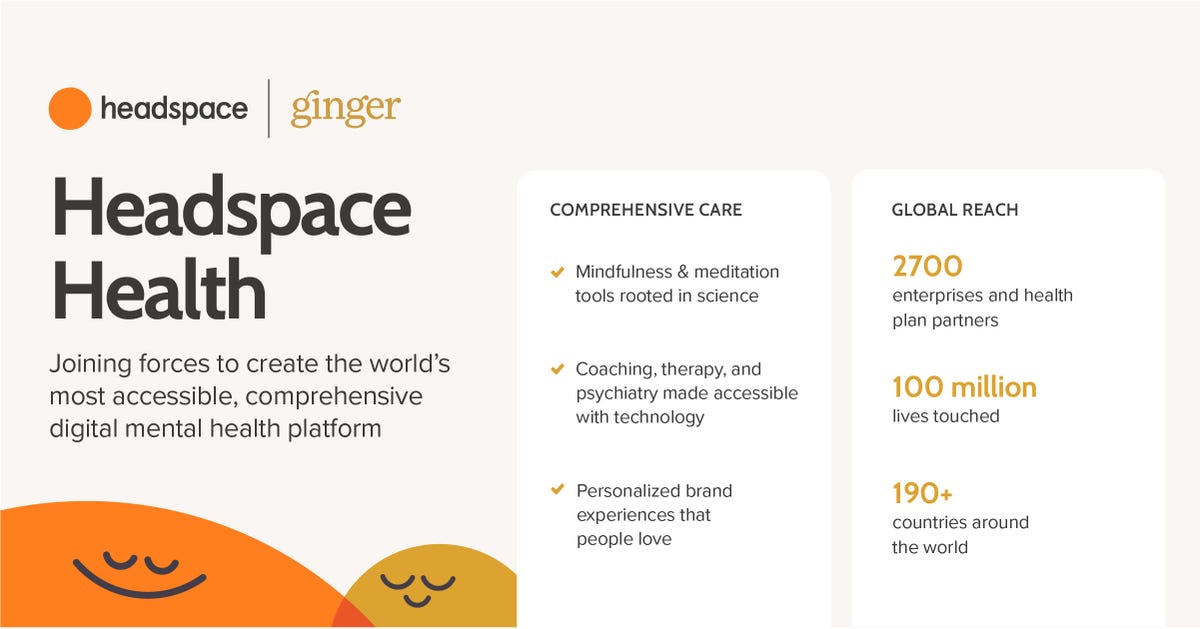
Headspace and Ginger, two popular digital mental health platforms, announced[1] Wednesday plans to merge. The combined company will have a $3 billion valuation, Headspace confirmed, as well as the world's largest mental health data set.
Together, Headspace and Ginger reach nearly 100 million users in more than 190 countries. They reach users with a direct-to-consumer model as well as through deals with more than 2,700 enterprises and health plans.
The combined entity will be called Headspace Health. The deal is expected to close in the last quarter of 2021, at which time Ginger CEO Russell Glass will take on the role of CEO of Headspace Health. CeCe Morken will remain CEO of Headspace and take on the additional role of President for the combined entity.
Headspace, founded in 2010, is a mindfulness and meditation platform. Ginger, also founded in 2010, provides a platform through which users can get access to behavioral health coaching, therapy and psychiatry.
The two companies have more than 800 employees. Their combined bookings by the end of 2021 will near $300 million.
Combined, they will reach consumers directly, as well as through employers and health plans. Their combined mental health dataset will be leveraged to deliver highly-personalized care, Headspace said.
Ginger is already reimbursed as a virtual in-network benefit through fully-insured, self-insured, and government-funded programs, such as Cigna and AmeriHealth Caritas District of Columbia, a Medicaid program. Nearly 700 companies provide Ginger as a benefit to their employees, including ViacomCBS, Delta Air Lines and Sephora.
Headspace is also fully covered through healthcare partnerships with companies like Bright HealthCare and Solera Health, which distributes Headspace to leading regional health plans through their Mental Health and Stress solution. More than 2,100 employers currently offer Headspace for Work for employees, including Starbucks, Adobe,

